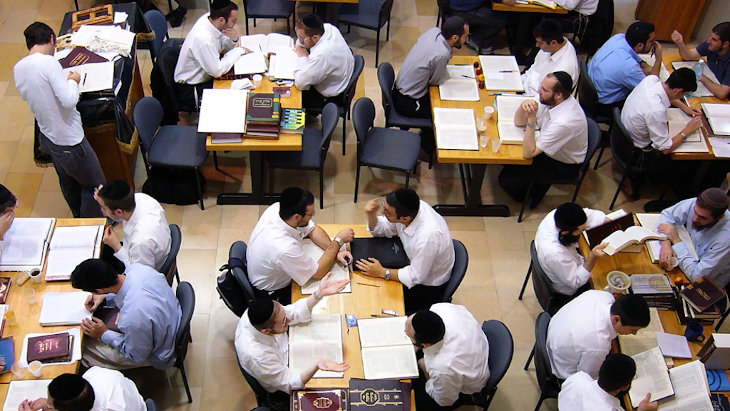 Vampire Weekend's Surprising Jewish Stories
Vampire Weekend's Surprising Jewish Stories


3 min read
Why we learn Torah in the wee hours of morning on Shavuot.
I’ve always been a night owl. I have a delayed sleep phase disorder where my internal clock tells me that 2, 3, or 4 AM is a perfectly acceptable bedtime, even if I have to be up at 8 AM to start my day.
I just function better at night. After 10 PM I feel my brain click into high gear. I get my work done faster. I am more creative. I generate ideas and plan to make recipes and clean the house and get my (very necessary) several cups of coffee ready for the next morning.
And yes, there's the flipside: I’ve stayed up until 5 AM binge watching, wasting time on the internet, and eating junk food. I did a lot of these at the beginning of the shutdown here in Los Angeles, when I was panicked and worried and stressed.
At night, when we're all alone and hidden from the outside world, we get to show who we really are. When the sky opens up, revealing its vistas of stars, that's when we can let our true souls emerge.
On Shavuot, which commemorates the giving of the Torah on Mount Sinai, we stay up all night to study the Torah to celebrate. We express our enthusiasm for the Torah by learning it from dusk until dawn. It’s a kind of rectification for our ancestors’ mistakes who overslept the morning they received the Torah.
The Talmud teaches, “One who studies Torah at night, a strand of loving kindness is drawn over him during the day” (Avodah Zara 3b). What is the special blessing of nighttime study? During the daytime a person may be studying so that others see him/her, but nighttime learning takes place in modesty and seclusion. It's an expression of Torah learning for its own sake. It's an expression of love.
During the day we fulfill our obligations and do what we've got to do – go to work, take care of our kids, attend school. At night, we do what we want to do, the things that we love, like staying up all night devouring the novel that we just can't put down.
On Shavuot, we show God how excited we are to receive the Torah. As a convert, I started learning the Torah in my early 20s. I was in a vulnerable place just getting my life started. I didn’t know what I was going to do for work, where I should live, or who I was. I was incredibly anxious because I felt if I made a misstep, my life would be messed up.
Now, 10 years after I started my conversion journey and five years after I officially became a Jew, I've gotten so many answers to these questions. I’m a much more calm and centered person. I could not have figured my life out without the Torah. It gives me the guidelines on how to live a fulfilling and meaningful life. It shows me the formula for happiness and taught me the importance of having faith in even the toughest circumstances.
This year, even though it seems like we’ll be alone this Shavuot night, God is always there with us. And by showing Him our enthusiasm for the Torah, we’ll receive a light that will take us out of this darkness and illuminate the entire world.
